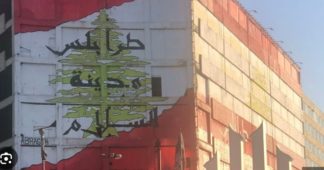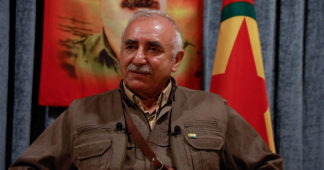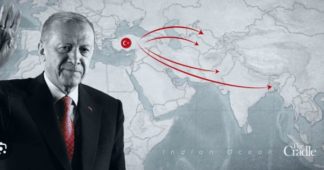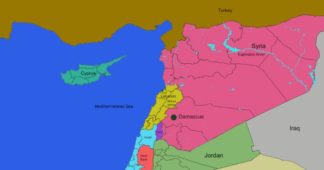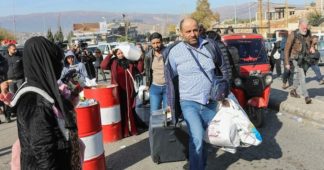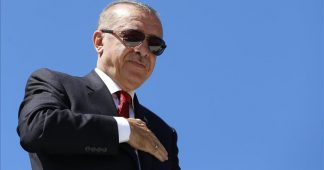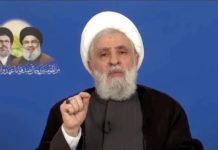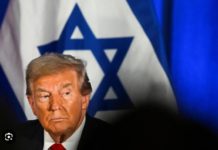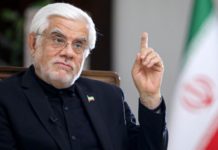The Cradle’s Lebanon Correspondent
JUL 16, 2025
Unsatisfied with its significant control over northern Syria and Iraq, Ankara is seeking to establish a political, security, and economic foothold in northern Lebanon – while Beirut watches impotently.
As Lebanon grapples with its myriad domestic crises and the geopolitical repercussions of the recent Israeli–Iranian war, Turkiye is stealthily expanding into Lebanese territory – particularly in the northern city of Tripoli and its surroundings.
A Tripoli directed from Damascus
Security sources inform The Cradle that Tripoli, the largest city in northern Lebanon, is now a major Turkish influence zone — managed and monitored by Turkish intelligence through a field office based in the Damascus area of Mezze. The operation is overseen by Turkish officer A.S., who runs a field-intelligence network in Tripoli tasked with overseeing street-level developments, coordinating political and religious activities, collecting information, and establishing a sustainable Turkish soft-power base in Lebanon.
For over a decade, Ankara has been amassing soft power infrastructure across northern Lebanon. Organizations like the Turkish Cooperation and Coordination Agency (TIKA) and the Diyanet Foundation have increased Turkiye’s humanitarian, religious, and educational presence, targeting impoverished Sunni communities in Tripoli, Minieh, Dinnieh, Akkar, and elsewhere. These agencies provide food and financial assistance, hundreds of annual scholarships, and manage mosques, schools, and cultural centers.
But the most sensitive tool they have employed is the granting of Turkish citizenship to hundreds of Lebanese families, under the pretext of Ottoman or Turkmen ancestry. This practice has birthed a dual-loyalty demographic – Lebanese-Turkish – that Ankara can activate in any future regional or domestic conflict. It is both a soft power base and a potential lever of political influence.
But behind the cover of ‘civilian agencies’ lies a carefully managed Turkish intelligence operation. According to The Cradle’s sources, Turkish officer A.S., who heads the Syria station, also supervises a field post in Tripoli led locally by a man named M.S..
M.S. moves freely across the city’s northern districts and receives direct logistical and technical support from Ankara, including satellite-based communication devices to evade interception by Lebanese networks.
He also runs a network of local operatives, working in coordination with social and religious structures under the umbrella of a figure known as A.A., who oversees a religious outreach network in Bab al-Tabbaneh. Operating under the banner of “moderate Turkish Islam,” this initiative is in fact building a community matrix aligned with Ankara.
The targets: Port, airport, refinery
Turkiye’s ambitions in northern Lebanon – as in northern Syria and Iraq – extend well beyond community influence; it aims to establish and control vital strategic infrastructure:
First, Ankara seeks to transform Tripoli’s port, one of the largest in the Eastern Mediterranean – larger than Tel Aviv’s port in both size and depth – into a logistical hub to transport Turkish goods into Syria and potentially Iraq. Turkish companies have already expressed interest in investing in and upgrading the port’s facilities, which are located close to the Syrian border, to international standards.
Third, and perhaps most dangerous of all, Ankara is maneuvering for control over the underutilized Beddawi Refinery, which is still connected to remnants of the Trans-Arabian Pipeline (TAPLINE) infrastructure.
Built in the 1940s, TAPLINE transported Saudi oil across the Levant to the Mediterranean coast, from Dammam to Sidon via Syria and northern Lebanon – including the Beddawi refinery. Although shut down in the 1980s, parts of the infrastructure remain, making the refinery a tempting energy node for any future regional alternative to Gulf-based oil transport.
For Ankara, controlling or even co-managing this facility would grant it a strategic energy stake in the eastern Mediterranean.
Lebanese ballot boxes: A new Turkish–Saudi battleground
With the retreat of former prime minister Saad Hariri’s Future Movement from Lebanon’s political scene and the erosion of Saudi dominance over the country’s Sunni populations, Turkiye is positioning itself for political gains in upcoming parliamentary elections. According to The Cradle’s sources, Ankara is backing a number of candidates in Tripoli, Minieh, and Akkar – some of Turkmen tribal origin, others trained politically and media-wise inside Turkiye.
In May 2025, Abdullah Eren, head of Turkiye’s Presidency for Turks Abroad and Related Communities (YTB), visited Turkmen towns in Akkar and Tripoli. Eren and Turkish ambassador Ali Baris Ulusoy visited a memorial commemorating the failed 2016 coup attempt in Kouachra, where they recited prayers and received a hero’s welcome from locals.
“Lebanon has special importance for Turkiye, especially because the Lebanese Turkmen are one of the country’s authentic components,” Eren declared, announcing that Ankara would increase scholarships for youth in Kouachra.
Imam Sheikh Mohammad Mourab, speaking at a mosque in Bireh, stated, “Muslims in Lebanon see themselves as part of Turkiye and follow every development there.” Turkiye’s soft power activities in these towns are not just symbolic – they aim to cultivate a growing sense of Turkic affiliation among locals.
In Ankara’s strategic calculus, Tripoli is not just a coastal city. It is the northern gateway to the Levant, a soft flank in Lebanon’s fragmented state system, and a launchpad into Syria, Iraq, and Jordan. The model mirrors Turkish activity in northern Syria: local governance, parallel security, and an economy tied to the Turkish lira.
Israel, for its part, is observing this shift with unease. Tripoli’s port – larger, deeper, and more expandable than Tel Aviv’s – poses a strategic risk, particularly if it becomes a logistical or security hub for Turkish–Iranian cooperation via the Tripoli corridor.
Since Turkish President Recep Tayyip Erdogan’s visit to the village of Kouachra in 2010 – a village with deep Turkmen roots – Turkiye has treated the area as a natural extension of its own sphere of influence.
According to information obtained by The Cradle, the base of influence Ankara established there remains active and intact, now reinforced by a significant segment of Lebanese citizens who have acquired Turkish nationality. Their number is estimated to range between 50,000 and 70,000.
Sources in northern Lebanon tell The Cradle that over the past several years, Turkiye has built a multi-tiered network of relationships. Some of these ties were temporary and transactional, while others have proven more strategic and enduring, such as Turkiye’s longstanding connection with the Marabi family, which is considered a key ally of Ankara in the region.
Turkiye has also activated its soft power tools through organizations like TIKA, which funds local associations and initiatives. Its social influence extends through figures like Khaled Tadmari, as well as individuals close to Lebanese MP Ihab Matar.
With the fall of former Syrian president Bashar al-Assad’s government and the rise of Ahmad al-Sharaa – a Turkish-backed figure and former ISIS chief – to the Syrian presidency, Turkiye’s influence in Lebanon has entered a phase of “strategic repositioning,” awaiting the right moment for activation in alignment with regional shifts.
‘Bilad al-Sham’ again?
Turkish state media increasingly refers to Lebanon as part of “Bilad al-Sham” (Greater Syria, or the Levant) instead of addressing the nation-states of the region by name. A recent report by Anadolu Agency, referencing US Ambassador Thomas Barrack’s comment about Lebanon rejoining the Levant region, stated:
“Historically, Bilad al-Sham stretched from the Taurus Mountains in southern Turkiye to the Sinai Desert in Egypt, and from the Mediterranean to the Iraqi desert … During the Islamic eras – particularly the Umayyad and Abbasid periods – Lebanon was part of the province of Al-Sham … In Ottoman times, Lebanon was divided between the vilayets (provinces) of Beirut and Damascus.”
Such references are not coincidental. They echo Turkish President Recep Tayyip Erdogan’s broader neo-Ottoman doctrine, which seeks to re-establish Turkiye’s sphere of influence through non-traditional tools: education, trade, religion, dual citizenship, and localized governance.
With no cohesive Lebanese strategy to thwart overt and covert aggressions by larger neighbors, and absent Arab counterweights, Beirut may soon wake up to a new reality: its northern region is being administered according to a foreign agenda, and its strategic facilities are being leveraged for regional ambitions that do not run through the Lebanese capital.
We remind our readers that publication of articles on our site does not mean that we agree with what is written. Our policy is to publish anything which we consider of interest, so as to assist our readers in forming their opinions. Sometimes we even publish articles with which we totally disagree, since we believe it is important for our readers to be informed on as wide a spectrum of views as possible.
